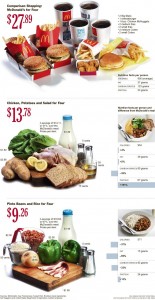
Within modern society, new fads come and go like clock-work. The latest one seems to be a health craze running rampant and comprising, in large part, of vegan and vegetarian choices. A survey in 2011 discovered “5% of Americans never eat meat” and “33% of Americans were eating vegetarian or vegan meals more often”. Although data suggests this is not a simple trend that will disappear anytime soon, the question lies in whether or not it will stick around enough to be taken advantage of.
Currently, one company in particular has taken notice and is now looking to fulfill the new demand by expanding its business. Organic Avenue, a vendor of high-end juices, salads, and other specialty foods, is attempting to become a national chain. The company has hired a new chief executive, Martin Bates, to take the reins and lead the Organic Avenue charge to the “promised land”. Bates has had proven success by being one of the leading forces behind the resurgence of “Pret a Manger”, a food franchise, in 2008. Pret a Manger’s turnabout was achieved by tweaking the products and services it provided to the tastes of the consumers’.
Project management will always be essential if companies hope to achieve the success they dream of. In order for Organic Avenue to have success, Bates’ strategy is to form partnerships with gyms, fitness clubs, high-end retailers, and open its own chain of stores as well, to supply the company’s products. One can quickly establish attention is focused on the availability and marketing of the product. Organic and healthy products could be considered to be in their introduction stage, and a tremendous of work must be exerted in order to reach the maturity stage.

Organic Avenue understands its customer base and target market; “people who want food that’s better for them”. It would be a mistake for the company to undermine consumers who simply want healthier products and focus attention on “hardcore” vegetarians or vegans. Currently, Organic Avenue is more known for juices and juice cleanses, but its other products must also be brought to light. The company also provides food (salads, soups, entrees, and snacks) and packages (Booster Packs, Immunity Essentials, and “2-Day Transition” to name a few).
Most people demonstrate xenophobia (fear of the unknown), and the switch to organic/healthy foods seems to be no exception to the rule. Society has an idea of why organic foods are better, but the media constantly manipulates our ideas and leaves people unable to distinguish fact from fiction.
Are organic and fresh foods worth the extra money or do they not provide the bang for our buck?
Will Organic Avenue need to create a new line of products or will alterations to current ones draw news consumers?
More importantly, will people be accepting of the change from fast/junk food to healthier options will people be accepting of the change from fast/junk food to healthier options?
YouTube: https://www.youtube.com/user/OrganicAvenueTV
Website: http://www.organicavenue.com/

